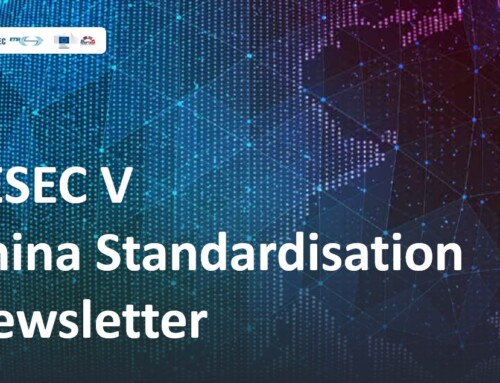On May 30, 2025 , the Annual Meeting of the National Standardization Education Working Group (SAC/SWG27) and the Standardization Education Week concluded successfully in Taiyuan, Shanxi Province, bringing together key representatives from academia, government, industry, and international organizations to explore the future of standardization education in the context of global digital transformation.
The five-day event was co-organized by Taiyuan University of Science and Technology, North University of China, and Shenzhen Technology University, and it focused on fostering high-quality talent aligned with future societal needs through diversified and technology-driven education models.
Strengthening International Dialogue and Educational Innovation
The event was launched with an opening ceremony attended by Mr. Guo Xinan, Deputy Director of the Shanxi Administration for Market Regulation; Prof. Liang Weiguo, President of Taiyuan University of Science and Technology; and Ms. Anna Gallet, Education Manager at the International Organization for Standardization (ISO). In their remarks, speakers emphasized the importance of standardization education in driving high-quality development and global competitiveness.
Notably, the ISO’s newly developed “Standardization Exploration Game” was unveiled, providing an engaging and educational tool to promote public awareness and interest in standardization.
Key Achievements and New Standards
A significant highlight of the conference was the official release of four new national standards on standardization education, developed under the leadership of SAC/SWG27. This marks a substantial breakthrough in aligning national educational practices with strategic standardization objectives.
The event also showcased award-winning student research papers and original short videos from the 2024 “Standardization+” competition, reflecting the creativity and insight of the younger generation in the field.
Deepening Industry-Academia Cooperation
A major focus was placed on the integration of standardization into professional education. In a special forum themed “Standards-Driven Collaboration for Innovation”, universities and enterprises—including ZTE Corporation—shared best practices in curriculum design, hands-on teaching, and industry partnerships. These discussions offered actionable pathways to deepen industry-academia collaboration and build a sustainable talent pipeline.
In parallel, working groups convened to refine the “Standardization Education Curriculum Development Guidelines”, focusing on priority sectors such as automotive, elderly care, logistics, automation, and pharmaceuticals. This effort reflects China’s commitment to developing a forward-looking, internationally relevant standardization education framework.
Talent Development and Global Vision
The event featured training sessions aimed at enhancing university educators’ capacity to teach standardization-related subjects. Experts from academia and industry delivered lectures on standardization competencies, curriculum frameworks, and pedagogical strategies, reinforcing professional readiness for a digital and standards-based economy.
In her annual report, Ms. Huang Manxue, Secretary-General of SAC/SWG27, highlighted the group’s accomplishments in 2024, including the publication of five national standards and progress in international cooperation. Looking ahead to 2025, the group will continue expanding its work on standard initiation, curriculum integration, and digital teaching resources.
Toward a Collaborative Global Future
Prof. Chen Gang, Chair of SAC/SWG27, concluded the conference by reaffirming the group’s commitment to fostering a more integrated, digitalized, and collaborative standardization education system. He called for deeper cooperation with international partners, including European standardization bodies, to jointly address the evolving demands of global education and industry.
The 2025 Standardization Education Week demonstrates China’s active role in shaping a globally responsive standardization education ecosystem, and presents new opportunities for collaboration in areas such as joint curriculum development, talent exchange, and cross-border standard implementation.




